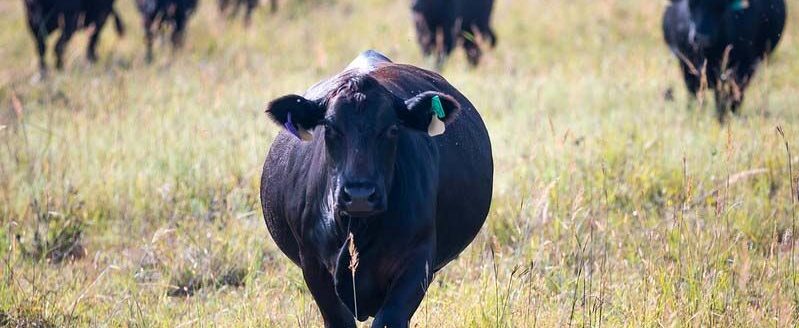The majority of New Mexico agricultural commodities are fueled by forage.
Of the state’s $3.22 billion cash receipts for commodities in 2016, 73.1 percent is from livestock and milk production, according to the U.S. Department of Agriculture’s National Agricultural Statistics Service.
In 2017, New Mexicans farmed 343,032 acres of forage products valued at $206 million.
Providing research-based information through workshops and publications, New Mexico State University’s College of Agricultural, Consumer and Environmental Sciences helps farmers efficiently produce high quality forage.
NMSU’s Valencia County Cooperative Extension Service will host its ninth annual Forage Growers Workshop on Dec. 4, to share the latest forage information. The workshop will be from 8 a.m. to 4:30 p.m. at the University of New Mexico-Valencia Campus, 280 La Entrada Road, Los Lunas.
Registration is $20, which includes program materials and lunch.
“There are many challenges to growing a high quality forage crop: weather, water, insects and weeds are some of those,” said Newt McCarty, NMSU’s agricultural agent in Valencia County. “At the workshop, we hope to provide information, tools and guidance to address challenges and increase the income potential for producers.”
Farmer Jim Cox always learns something from the presenters.
“I find the benefit of attending this workshop outweighs the registration fee,” said Cox, who is a regular at the workshop. “If I don’t get all the information I want about certain things, I get pointed in the right direction to find it. It’s also a great opportunity to earn continuing education units for your private applicator licenses. And it’s a great place to see old friends and make new ones.”
A wide range of topics will be covered during the presentations, including the effect of water quality on pesticides.
“The quality of the water that managers mix with the herbicide active ingredients can potentially decrease the efficacy up to 50 to 60 percent, thus potentially increasing the need for higher herbicide rates, multiple sequential applications, and ultimately, a failed attempt at controlling weeds in a safe and successful way,” said Leslie Beck, NMSU Extension weed specialist, who will speak on this subject.
Other topics will include:
– Soil testing and appropriate fertilization to maximize forage production by Robert Flynn, NMSU agronomist.
– Water outlook and discussion of opportunities for more efficient and consistent water delivery in the future, by Mike Hamman, Middle Rio Grande Conservancy District’s chief executive officer and chief engineer.
– General management practices impacting alfalfa quality by Leonard Lauriault, forage agronomist at NMSU’s Agricultural Science Center at Tucumcari.
– Pest identification and management of alfalfa weevil, aphids and white fringed beetle by Jane Breen Pierce, NMSU Extension entomologist.
– Research findings on Plantain management in alfalfa and follow up on managing common weeds in forages by Beck.
– Weed-free forage and the opportunity for producers to participate in a higher value market by Cary Hamilton, NMSU research director for the New Mexico certified weed-free forage.
– Results from the first year variety trials of fescue and orchard grass by Mark Marsalis, Extension forage specialist at NMSU’s Agricultural Science Center at Los Lunas.
– Variety selections of alfalfa and fescue by Marsalis.
Five CEUs for the New Mexico Department of Agriculture applicator’s license are available for attendees.
USDA agency representatives will also present updates on programs available through the Natural Resources Conservation Service, Farm Services Agency and Valencia County Soil and Water District.
